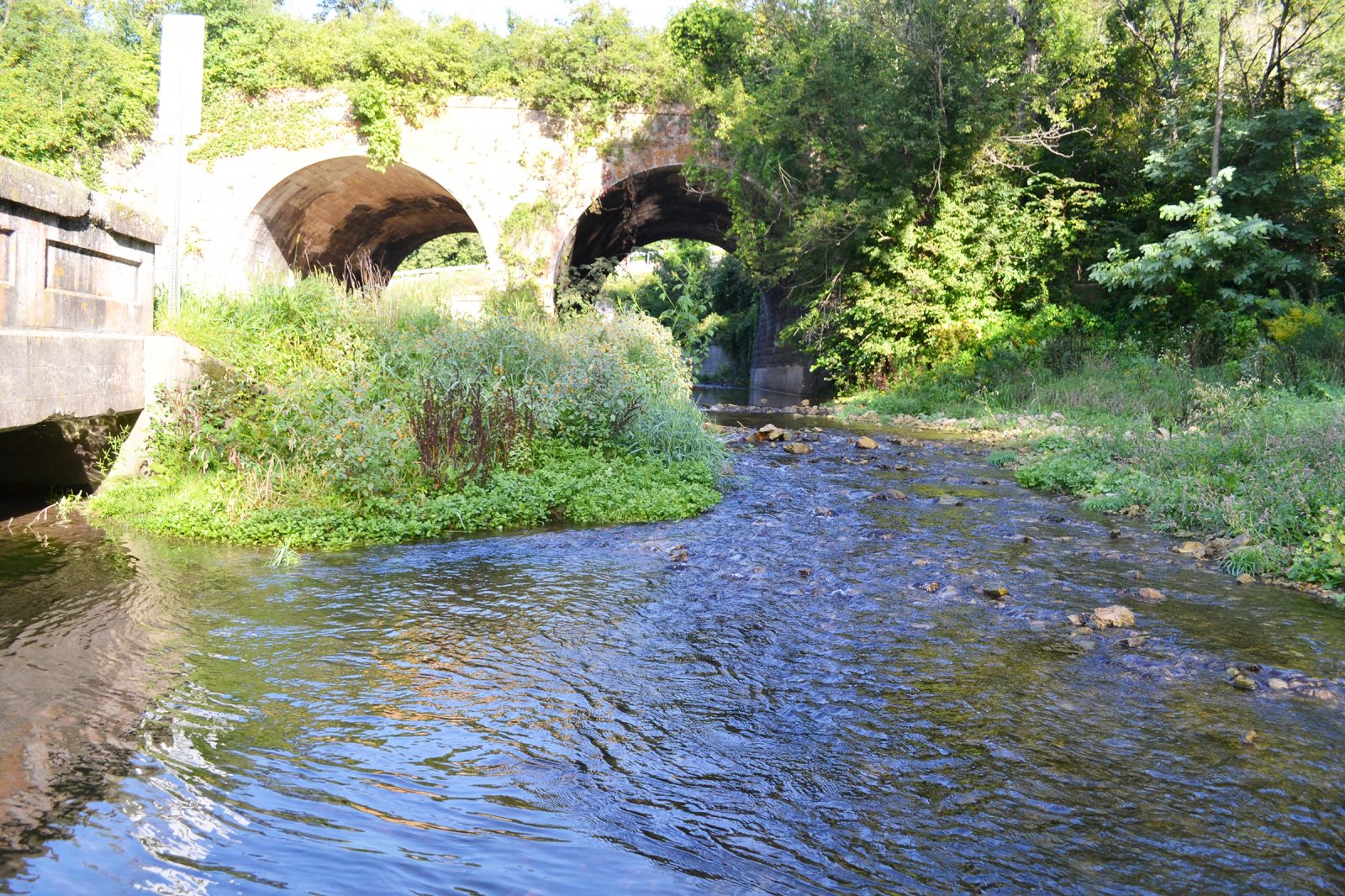LEWISTON, Minn. — A lot of proverbial water has passed under the bridge in the 12 months since a major fish kill was discovered south of Lewiston: local residents banded together to learn more about the area’s vulnerable water resources; several groups teamed up to raise awareness of threats to streams, rivers and wells; and finally, a major new law was passed during the 2023 session of the Minnesota Legislature that improves the fish kill reporting process. But as the Upper Rush Creek fish kill anniversary passes, more work is needed to prevent future disasters and to hold polluters accountable, say the citizens involved with the issue.
“I am encouraged that this bill created a protocol for responding to and handling fish kills,” said Richard Ahrens, a Land Stewardship Project (LSP) member and a retired beef and crop farmer who lives roughly one mile from where at least 2,500 fish, mostly brown trout, were found dead on Upper Rush Creek south of Lewiston on July 25, 2022. Ahrens, along with other LSP members, helped draft recommendations to policymakers and participated in advocacy at the Minnesota Legislature to pass the “fish kill” bill. “It is our hope that the measures contained in the fish kill legislation will stir the waters of complacency in an effort to ensure healthy waters for aquatic and human health,” Ahrens added.
An angler reported the Rush Creek fish kill to state agencies immediately. However, it took nine months to determine that manure runoff after a rainstorm had caused the kill. In addition, this fish kill is one of many that have occurred in the region in recent years. In fact, summer season often becomes fish kill season in areas like southeastern Minnesota. In 2019, 1,500 fish were reported killed in Garvin Brook, just east of Lewiston. In 2021, 250 trout were found dead in Trout Valley Creek, just south of Weaver. And in 2015, one of the most productive trout streams in the state, the South Fork of the Whitewater River that passes to the west of Lewiston, was the site of yet another disaster that was estimated to have killed nearly 10,000 fish. Fish kills can result from numerous manmade sources, including pesticide and manure runoff, and prompt investigations are imperative before evidence is wiped out.
In 2022, Winona County residents, working with LSP, organized a campaign to improve the process for reporting fish kills. They held informational meetings, drafted a letter that was hand-delivered to Gov. Tim Walz’s office, and worked to push through legislation at the Capitol. Lee Stoe, an avid fly angler, was one of the LSP members who got involved. At the beginning of the legislative session he met with and lobbied the chief authors of the fish kill bill, Rep. Sydney Jordan and Sen. Jen McEwen. He also testified at the Capitol in favor of the bill. LSP members worked with a coalition of organizations that included the Minnesota Center for Environmental Advocacy, Minnesota Trout Unlimited and the Minnesota Well Owners Organization to collectively draft policy proposals that shaped the final language of the bill. Stoe said when he and other citizens started looking into the fish kills, they came to realize that water in the region faces numerous threats that need to be addressed, from chemical pollution to sedimentation caused by erosion.
“While looking for reasons for the fish kill, I found out about dangerously high nitrate levels in private wells in Winona County. I knew I needed to take action,” said Stoe, who, along with his son and grandson, had gone fishing on Upper Rush Creek just a few weeks before the 2022 fish kill. “I’m happy to know that our successful efforts will help protect not just the fish, but also the people.”
The bill that was passed, among other things, directs the Minnesota Pollution Control Agency, the Minnesota Department of Natural Resources, the Minnesota Department of Agriculture and the Minnesota Department of Health to propose and finalize a comprehensive investigation protocol. It also requires an on-the-ground response from the state within 24 to 48 hours of a fish kill, as well as a more comprehensive list of what samples to collect and what tests to run. The law strengthens the issuing of public notices to downstream residents when a fish kill occurs. State agencies must also make recommendations to the Legislature on what laws and regulations need to change to prevent future fish kills from occurring, particularly in the karst region of southeastern Minnesota.
“These citizens responded to a disaster in the community by taking action and getting this law passed,” said Sean Carroll, LSP’s Policy Director. “This shows the power of grassroots people power. Now we need to continue to address the root causes of this problem: manure mismanagement from the industrial farming system. Right now, it’s too easy for a few factory farms to get away with pollution, and that’s bad for the many other farmers who are stewarding the land well. In fact, it’s bad for all of us, because it threatens the water we all depend on. Our public policy needs to continue to do more to support the many farmers across southeastern Minnesota who are stewarding the land and protecting our water. Policy also needs to hold the factory farms who threaten it accountable.”
The Land Stewardship Project (LSP) is a private, nonprofit, membership-based organization founded in 1982 to foster an ethic of stewardship for farmland, to promote sustainable agriculture and to develop healthy communities. It has offices in the Minnesota communities of Lewiston, Montevideo and south Minneapolis.
-30-
